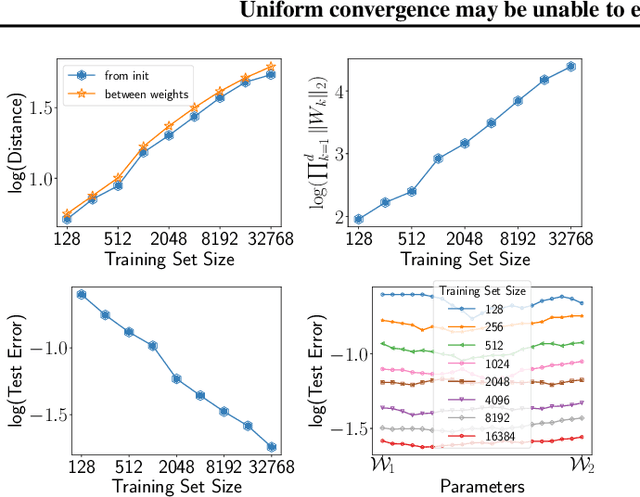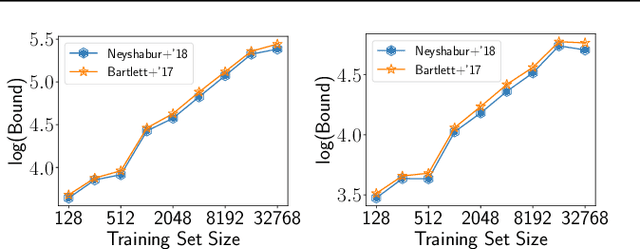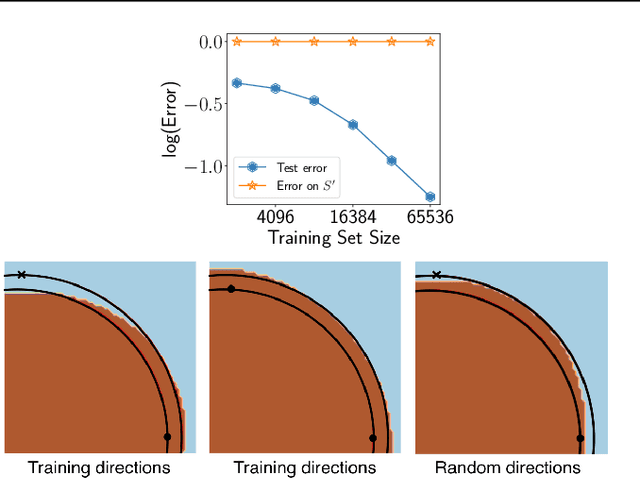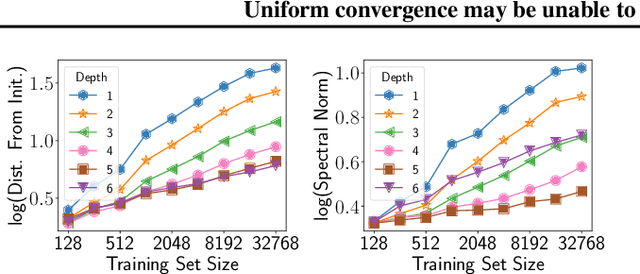Uniform convergence may be unable to explain generalization in deep learning
Paper and Code
Apr 02, 2019



We cast doubt on the power of uniform convergence-based generalization bounds to provide a complete picture of why overparameterized deep networks generalize well. While it is well-known that many existing bounds are numerically large, through a variety of experiments, we first bring to light another crucial and more concerning aspect of these bounds: in practice, these bounds can {\em increase} with the dataset size. Guided by our observations, we then present examples of overparameterized linear classifiers and neural networks trained by stochastic gradient descent (SGD) where uniform convergence provably cannot `explain generalization,' even if we take into account implicit regularization {\em to the fullest extent possible}. More precisely, even if we consider only the set of classifiers output by SGD that have test errors less than some small $\epsilon$, applying (two-sided) uniform convergence on this set of classifiers yields a generalization guarantee that is larger than $1-\epsilon$ and is therefore nearly vacuous.
 Add to Chrome
Add to Chrome Add to Firefox
Add to Firefox Add to Edge
Add to Edge